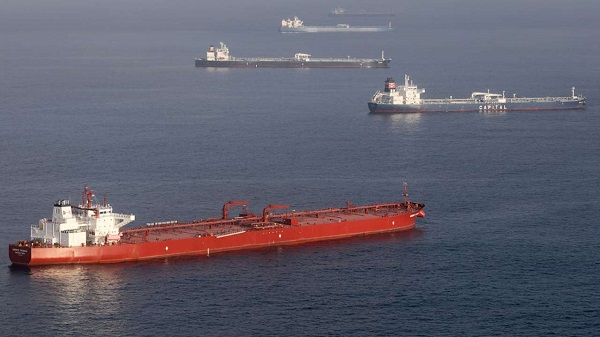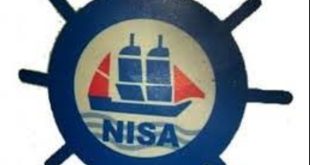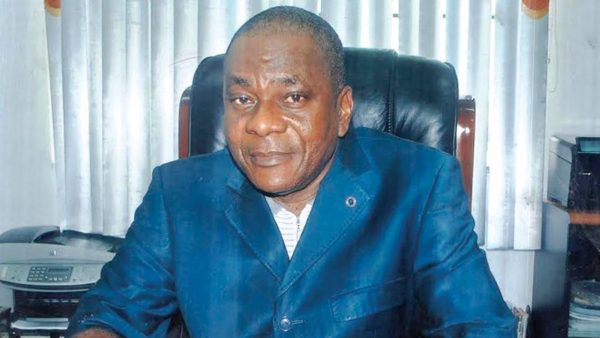
· 3 million direct, indirect job opportunities missed
· $30bn lost opportunities for seafarers
· AfCFTA: NIMASA, NNPC yet to unveil strategy for indigenous shipping
By Kenneth Jukpor
Foreign dominance in crude affreightment has accounted for over $170billion losses in freight charges and taxes as less than 5 percent of the operations have been carried out by Nigerian indigenous ship owners in the last two decades.

Since 2000, over 3 million direct and indirect jobs opportunities have been lost, while Nigerian seafarers have lost opportunities worth over $30billion in the period under review.
These frightening stats were unveiled by the Ship Owners Association of Nigeria (SOAN) last week when the association engaged the Nigerian National Petroleum Corporation (NNPC) on strategies to boost indigenous shipping.
Meanwhile, the implementation of the African Continental Free Trade Area (AfCFTA) is set to take off in January 2021 with Nigeria’s shipping grossly unprepared for the regional trade agreement.
Indigenous ship owners have also lampooned the Nigerian Maritime Administration and Safety Agency (NIMASA) and the Nigerian National Petroleum Corporation (NNPC) for not showing any plans to position ship-owners to benefit from AfCFTA.
There are also fears that Nigeria’s failure to open its ship registry may see the nation lose out to nations like Liberia and South Africa with sizable fleets of ships to maximize the potentials of AfCFTA.
Speaking with MMS Plus newspaper last week, the President of Ship Owners Association of Nigeria (SOAN), Dr. Mkgeorge Onyung lamented the poor state of indigenous shipping in the country.
“When we talk about AfCFTA from the shipping perspective, NIMASA and NNPC have key roles to play for indigenous shipping to thrive. This is the position of ship owners. SOAN has made presentations to NNPC and NCDMB on the ways to boost indigenous shipping,” he said.
Giving an example of foreign dominance, Onyung said; “There is news about an Ireland ship that came into Nigeria and went to the Escravos to do crude oil evacuation. This is something that labeled illegal bunkering in the past. Today, it is not only legitimate but open to foreigners. That Ireland ship later exploded and we are lucky it didn’t kill anyone, but that ship had no business in Nigeria.”
Noting that the global blue economy accounts for $6trillion a year which translates to $16.4billion daily, $680million per hour and over $11million per minute, shipping experts have admonished NNPC and NIMASA to indicate how much of this revenue Nigeria can amass and unveil strategies to actualize them.
The SOAN President, who is also chairman of a Presidential Committee to exploit shipping opportunities for AfCFTA, posited that Nigeria wasn’t ready for the implementation of the regional trade agreement from the shipping perspective.
“All the ships that come to Nigerian ports are Norwegian, Dutch, American, even South Africa, among other nations. Where is Nigeria’s advantage? In port operations Nigeria isn’t among the top five efficient ports in Africa. If AfCFTA is seen as an Olympic competition, is Nigeria preparing to come first or are we just participating in the race. Excuses are for losers. Nigeria isn’t ready for AfCFTA in terms of shipping.”
“What is Nigeria’s strategy to grow seafarers? The Philippines have over 400,000 seamen that bring in over $6billion yearly into the nation’s economy. Should Nigeria with a population of over 200million struggle to produce 100,000 youths to export as seamen? Those 100,000 seamen would bring over $1.5billion per annum. This means each individual earns $15,000 per year which is over N400,000 per month. How many industries can pay Nigerians over N400,000 monthly? Isn’t that the salary scale of a bank manager?”
Since Nigerians in the upstream sector have acquired brand new ships worth over $115million and they operate them in a manner that meets the standards demanded by International Oil Companies (IoCs); shipping experts have expressed skepticism on NNPC’s claim that Nigerian ship owners don’t meet their standards.
Also speaking with MMS Plus newspaper last week, Chief Executive Officer, Oceanic Energy Limited, Capt. Taiwo Akinpelumi urged the Federal Government through statutory agencies to fix indigenous shipping woes to enable the players venture into the continental area.
Noting the advantage a country like Liberia has with an open ship registry and what that would mean in regional competition, he wondered what stopped NIMASA from opening the much publicized open registry last year.
His words: “Indigenous ship owners need funds and there is also a need to develop human capacity in the area of seafarers’ development. The government is yet to show the requisite interest in shipping. We are still talking about the non disbursement of Cabotage Vessel Finance Fund (CVFF). There is no Protection and Indemnity (P&I) Club in the country. We are losing insurance and freight on crude oil sales. How can Nigeria be talking about economic diversification for years without addressing these problems? How would shipping fare under AfCFTA when it is already stifled within the country?”
According to him, Nigeria would have to address the numerous challenges in its Cabotage trade and provide funding in order to empower indigenous ship owners to be relevant under the regional trade agreement.
“Our ports are congested and several other challenges. There ought to be a framework to provide a holistic approach to solve these problems. Ship owners are willing to partner with the government but the government doesn’t seem to be ready for such partnership,” he added.
Meanwhile, while receiving an AfCFTA implementation team recently, the Executive Secretary of NSC, Mr. Hassan Bello also stressed that there were lots of issues to be fixed in the sector to enable the transportation place Nigeria in an advantageous position.
Bello identified some of these crucial factors as road infrastructure, railway connectivity to inland dry ports and hinterlands, speedy cargo evacuation, automation, Single Window platform at ports, availability of fleet for ships and aircrafts, among others.
He, however, expressed optimism that Nigeria could be ready for the AfCFTA take off in January 2021, adding that the port system would be fully automated in the first quarter of 2021.
“This AfCFTA is coming up effectively in January 2021 and we have to inspect the nation’s infrastructure and policies. This agreement is good but it will only favour those who are ready and those who continue to improve their infrastructure. If I look at the state of our readiness as a nation, I know that we have a lot of work to do.”
“We have a deficit on transport infrastructure. We have the issue of roads, rail and connectivity to hinterlands. Although we have a population of over 200million, an enormous market and vast coastlines, these factors have to come together in a deliberate manner to facilitate trade under AfCFTA,” Bello said.
Bello also noted that the nation would soon record a boom in ship acquisition as the National Fleet Implementation Committee has made headway in addressing most of the factors limiting ship acquisition
 MMS PLUS NG – Maritime, Aviation, Business, Oil and Gas News Online Newspaper with coverage in Maritime, Oil and Gas, Aviation, Power and Energy as well as Financial News
MMS PLUS NG – Maritime, Aviation, Business, Oil and Gas News Online Newspaper with coverage in Maritime, Oil and Gas, Aviation, Power and Energy as well as Financial News









